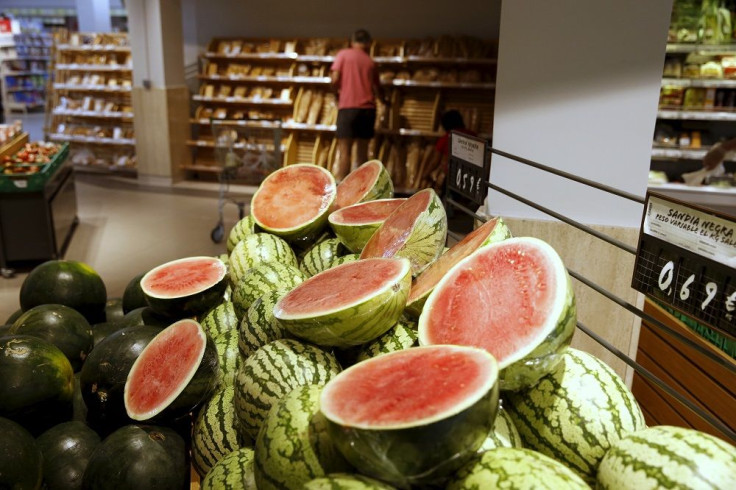Study says watermelon is for men who want their manhood to grow a few inches longer without surgery

While most men, given the chance, would want to have a longer and thicker genital, not everyone is willing or could afford to spend $13,000 (AUD$17,333) on a new penile implant being offered by Dr James Elist, a urologist.
The New York Post reports that there is a more natural method that costs much less, and it is easily available in many parts of the world. It is as simple as eating watermelon, a fruit full of an amino acid that encourages the dilation of blood vessels which would make the penis look bigger because more blood could get to it.
According to Healthline, watermelon contains the amino acid L-citrulline that the body converts into another amino acid, L-arginine, which encourages the blood vessels’ dilation. The acid creates nitric oxide, a compound the helps widen blood vessels.
L-arginine helps people suffering from heart ailments or clogged arteries by widening vessels and easing as well symptoms of erectile dysfunction (ED). One study, published in NCBI, even showed that the acid improved the ability to maintain an erection, although no research have studied the use of L-citrulline in moderate to severe cases of ED.

The NCBI research was a single-blind study with 24 patients with a mean age of 56.5 years. Twelve or half of the men who took L-citrulline showed an improvement in erection hardness score from 3, or mild ED, to 4, or normal erectile function. However, the study states the positive effect is short term, but there needs more studies as an alternative treatment for mild to moderate ED for patients with psychological fear of phosphodiesterase type-5 enzyme inhibitors.
It is not just watermelon that contains L-citrulline, although the fruit is one of the largest food sources of the amino acid. Other sources are meat, legumes and nuts. Most individuals use supplements to boost the amount of L-citrulline in their diet since it is available over the counter. Because there are few peer-reviewed credible research that look into the proper dosing of the amino acid, there is no official dosing.
According to Livestrong, a 1 ¼ cup serving of watermelon has 57 calories, 14 grammes of carbohydrates and 12 grammes of sugar. It recommends for people with diabetes – who could also be suffering from ED --- or concerned with how it would affect their blood glucose, to eat it with protein, fat or low-glycemic index foods such as beans or oatmeal. Doing so would slow the glucose’s absorption into the blood stream. It also advises discussing with a dietitian concerns over inclusion of watermelon in the diet.






